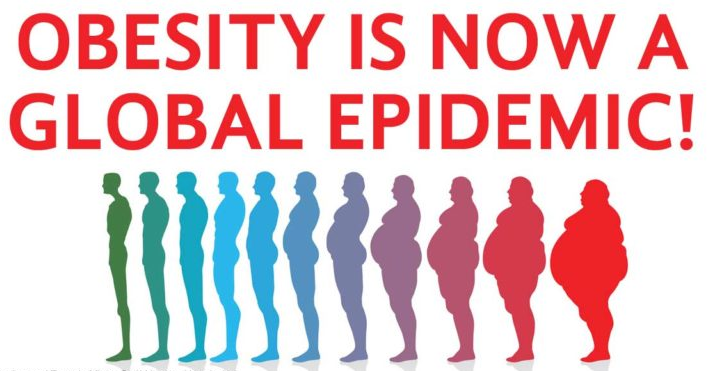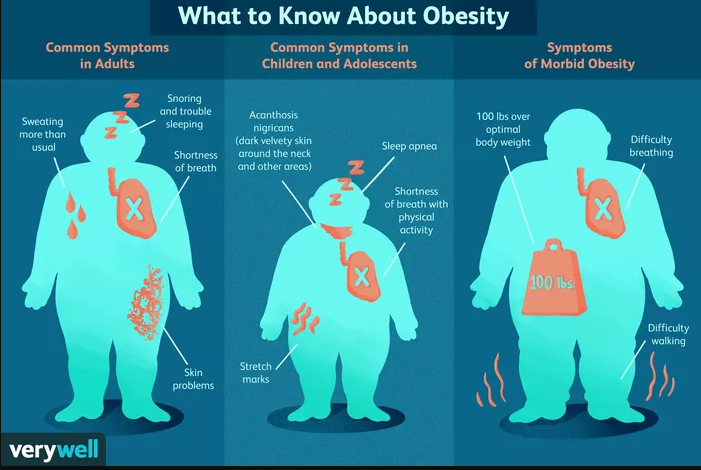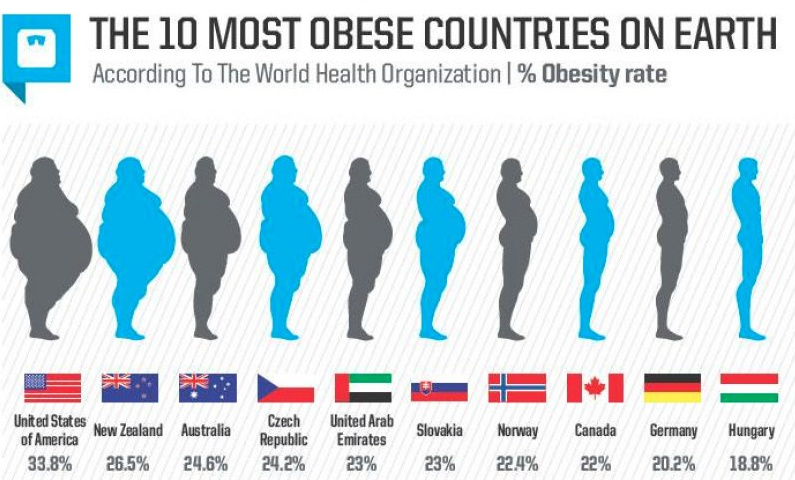Obesity and its trend in the 21st Century
Obesity is an emerging phenomenon in recent years. A report presented by the World Health Organization(WHO) in 2016 stated that the global prevalence of obesity has nearly tripled between 1975 and 2016. With more adults and teens overweight, health-related issues like type-2 diabetes, cancer, and heart diseases also rise. This project will ask essential questions as guides to explore the facts and nature of obesity. Again, it will try to understand the primary cause of obesity, such as genetics, ethnicity, dietary culture, or underdeveloped society. Sizable and practical data will be gathered to answer those questions and generate insights on preventing and overcoming obesity. The technique of which will be detailed in the data gathering section. Due to this project's spectrum and academic schedule, not all questions are areas of interest that will be explored or answered.

(source:" https://www.myendo-health.com/patient-education/obesity/")
Interested Areas and Self-Explortary Questions
This section of the introduction page lists some of the interesterd areas that should be explored in later studies with the use of different data analytics techniques. Under each question is a short comment to furthur explain the usecase them
Q1: How is obesity distributed in the world?
This focuses on the distribution of overweight people globally, which region has the most obese people.
Q2: More obesity in developped or developping countries?
More obesity in a developed country may vary due to fewer outdoor and industrial jobs, more processed food, and entertainment options.
Q3: In which race has more obesity
Whether race or genetics plays a part in the rate of obesity.
Q4: Which health issue is most prominent in the obesity population?
There are lots of health issues related to obesity, like diabetes and heart diseases. This question find which one has the highest occurrence and may dive into why

(source:"https://www.verywellhealth.com/obesity-4014682")
Q5: What age group has more obesity, male or female
This question compare the average age of overweight people and normal-weight people and control all other variables to if age relates to obesity.
Q6: What might be the cause of obesity?
As noted in the project introduction above, there are many possibilities for this question. There are a few: mental health issues like depression and bi-polar diseases, family history and genetics, unhealthy environment, unhealthy lifestyle, age & gender, race or ethnicity, pre-existing medical conditions, etc.
Q7: Are people who used to be obese have a higher chance of going back to obesity?
Weight loss can be challenging for many people because it can be hard to maintain a healthy weight. The goal is to determine the interval between a person losing weight and gain that weight back.
Q8: Comparing overweight children with normal-weight children, who have a higher chance of obesity in adulthood, what's the lifespan of them?
This question looks to find if people who are obese at a younger age(whether lose weight or not)will have a higher chance of overweight continuously in adulthood.
Q9: What are the popular methods of losing weight? What is the most effective one? How to determine which way is suitable for the mass population?
These questions should look into all popular weight loss programs or methods, surgical removal of the particular organ, dietary control, including several popular diet options: intermittent fasting, ketogenetic diet, carnival diet, high-intensity workout methods, etc. For each technique, gather data with detailed human profiles to study, may need to discuss male and female separately.
Q10: Will obesity become a more significant issue in the future?
It might. Use recent pandemic as an example: As people are forced to stay home more, less activity each day naturally leads to a higher weight. People may also consider the adverse effect of Artificial Intelligence in the near future. Although Artificial Intelligence might create some jobs, more errands, offices, and manufacturing types of jobs will be replaced. A few are listed here: autonomous vehicles, automated tax reporting, and accounting services. Hypothetically speaking, jobless people tend to develop mental illness and, thus, overweight.
The figure below demonstrates the severity of obesity globally and further emphasis on the importance of this study.

(source:"https://art3170csula.blogspot.com/2018/11/obesity-in-low-income-communities.html")